close 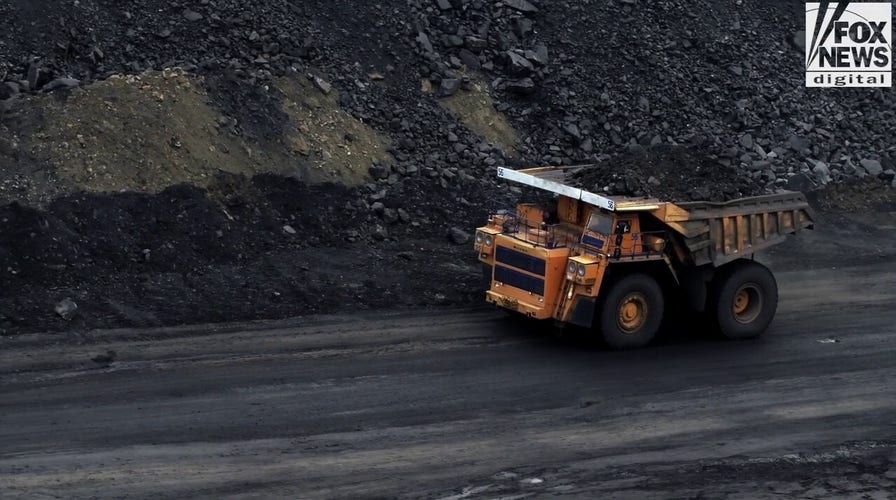
Does China’s purported green energy push signal a coming conflict with the US?
China is investing heavily in electrifying its transportation industry, which some officials have applauded, but critics say the country has other motives.
Beijing is only attempting to appear as though it’s concerned about climate change to appease the West — all while China is using more domestic coal as a way to strengthen energy independence in case of a future conflict, according to a policy analyst.
“The Biden administration and frankly, too many policymakers in Washington, D.C., continue to see China as a partner,” Chuck DeVore, the chief national initiatives officer at the Texas Public Policy Foundation, told Fox News. “They look at things like cooperation with climate change as one of the things that we should be working with China on.”
“I find [it] utterly remarkable that Chairman Xi [Jinping] of China and the Chinese Communist Party gives a tinker’s damn about the planet’s climate or climate change,” DeVore continued. “It is merely a device to engage gullible Westerners into thinking that somehow we can get meaningful cooperation.”
CHINA’S CLIMATE POSTURING IS MEANT TO DUPE THE US, POLICY ANALYST WARNS
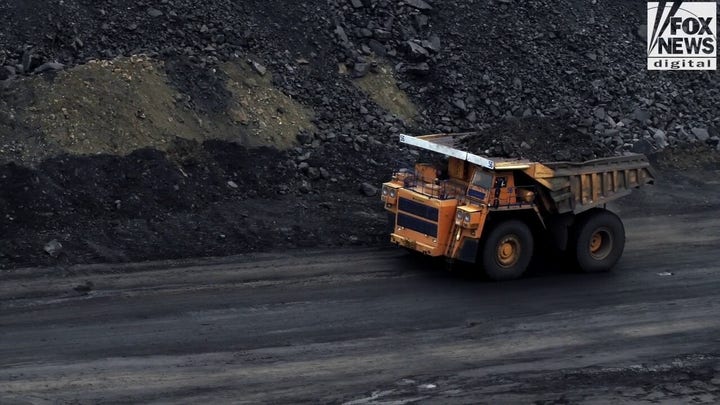
WATCH MORE FOX NEWS DIGITAL ORIGINALS HERE
Jinping promised not building more coal-powered power plants abroad in 2021. But that same year, the country began building over half of the world’s new coal-based power plants, all within China, according to The Wilson Center.
Since the country doesn’t have any other significant energy sources, China’s reliance on coal allows Beijing to avoid depending on foreign sources, DeVore told Fox News. That also means China’s recent increased investment in coal-powered industries helps protect its energy independence in case of conflict.
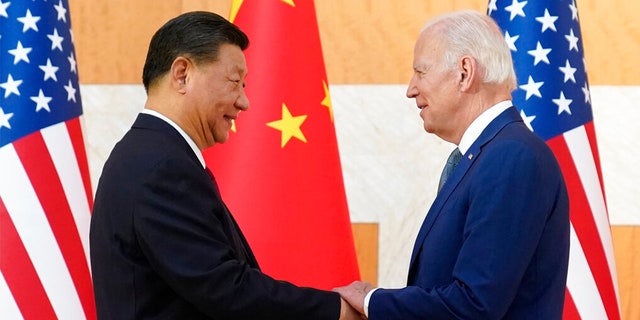
U.S. President Joe Biden, right, and Chinese President Xi Jinping shake hands before their meeting on the sidelines of the G20 summit meeting. (AP Photo/Alex Brandon)
“It’s not at all about green energy,” Devore said. “It’s about making the Chinese economy resilient in the event of a conflict with America.”
China hit a coal production record in November — the same month President Biden and Xi discussed climate goals — and 2023 production is expected to expand further, according to China’s National Bureau of Statistics. About 55% of China’s energy comes from coal compared to 11% in the U.S., according to the U.S. Energy Information Administration.
GOP LAWMAKERS DEMAND ANSWERS FROM JOHN KERRY OVER ‘EFFECTIVELY OUTSOURCING’ US POLICY-MAKING
“If you look at the amount of electric vehicles being sold in China, you look at their high-speed electric rail, et cetera, they’re going all in,” DeVore told Fox News. “Those electric vehicles in China are coal-fired cars. That’s where the energy comes from to charge the cars in China. Coal, Chinese coal.”
“If you thought that carbon dioxide emissions were a problem and the planet was warming, then you’d have to ask yourself, ‘why is it that the Chinese are converting so much of their coal into fuel right now,'” DeVore added.
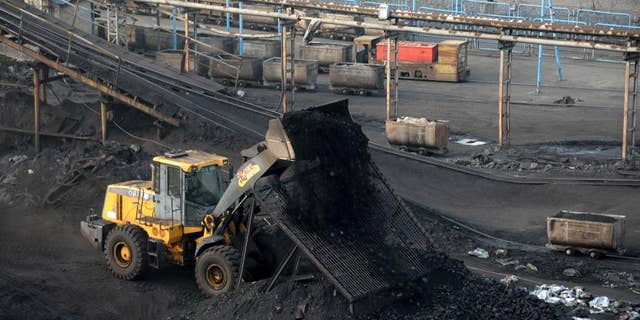
A worker watches a bulldozer unload coal at a coal mine in Huaibei in central China’s Anhui province. (The Associated Press)
China has been increasing investment in its coal-to-liquids industry, which enables coal to be turned into cheap fuel for pedestrian and military use, according to DeVore. But that process makes more carbon dioxide emissions than traditional oil refining methods.
WHAT IS THE NATIONAL POWER GRID AND HOW RESILIENT IS IT?
Other Chinese green energy products have also sparked concerns from federal agencies.
U.S. Customs and Border Protection seized shipments of Chinese-made solar equipment last year because the products were from Xinjiang, where the U.S. has banned purchases over concerns of slave labor.
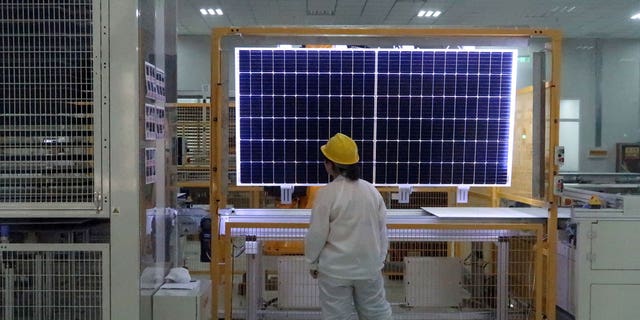
A worker quality checks a solar component in China. Imports from its Xinjiang region have been suspended over concerns of slave labor. (REUTERS/Muyu Xu)
Regardless, climate change should not be the priority of U.S.-Chinese foreign policy, according to DeVore.
CLICK HERE TO GET THE FOX NEWS APP
“America’s number one priority is maintaining our ability to deter the People’s Republic of China from aggression on its neighbors,” he said. “This would include the Philippines, Malaysia, Indonesia, Vietnam, India, the nations of the Indo-Pacific.”
“These are nations that are now seriously threatened by a country that has increasingly grown aggressive and belligerent and has made no secret of its designs on its neighbors,” DeVore told Fox News.
To watch DeVore’s full interview, click here.
Isabelle McDonnell contributed to the video.
Jon Michael Raasch is an associate producer/writer with Fox News Digital Originals.
